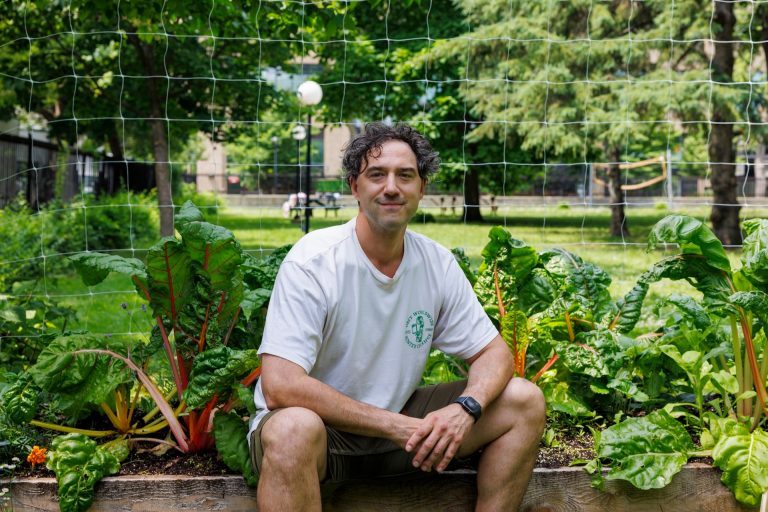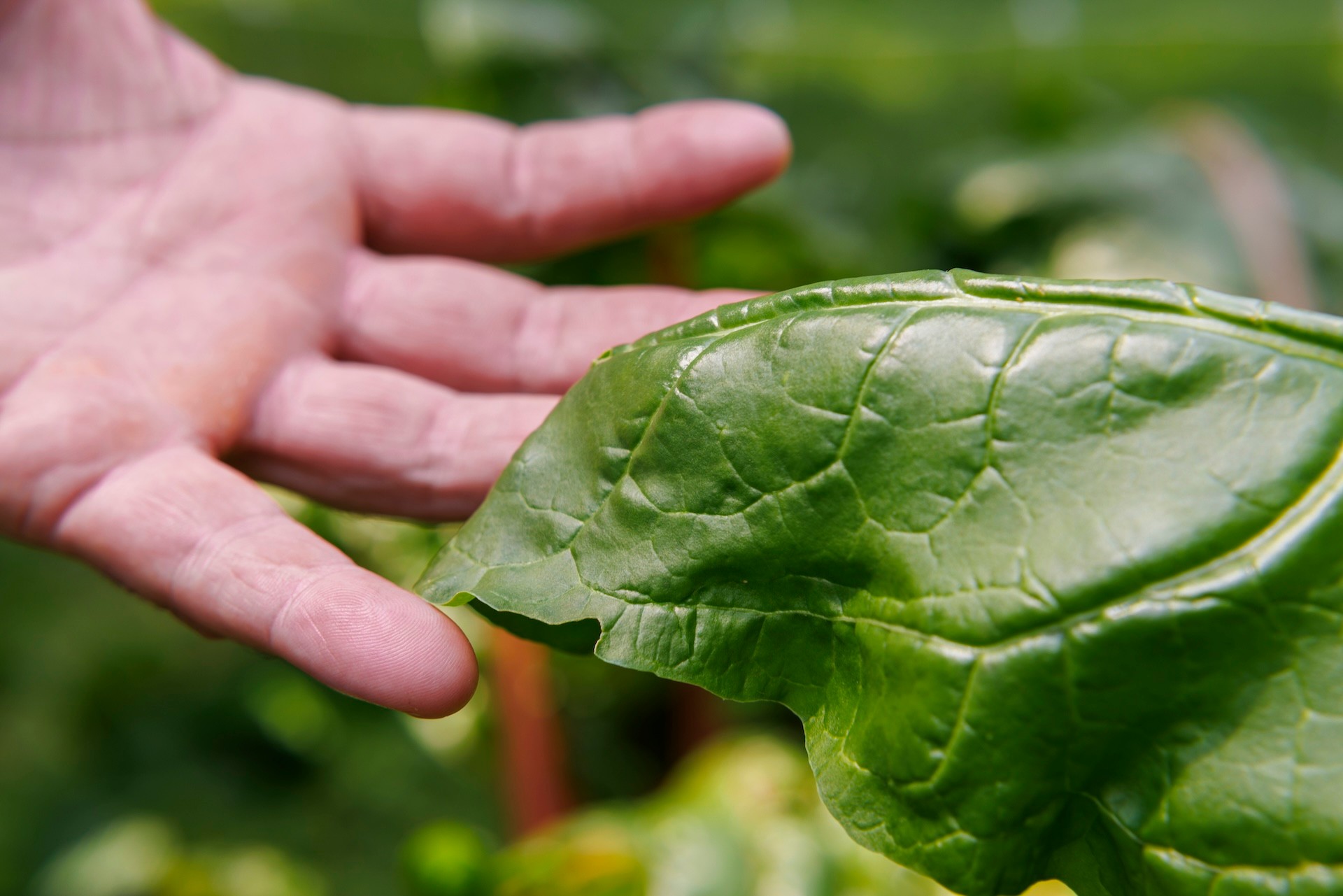Concordia prof Mitchell McLarnon is ‘building a community around a garden’

Mitchell McLarnon, assistant professor in Concordia’s Department of Education, is passionate about garden-based and environmental learning. He recently created a new garden-based teaching and research location on the university’s downtown campus.
McLarnon is also developing a toolkit for teachers across the province, supporting them as they teach kids about climate change.
"There's this idea that by spending time immersed in nature or in natural settings, that students will inherently learn to appreciate and care for it and become environmental stewards," he notes. "I think that’s really cool — and true — but I don't want to discount the role of the educator here.
"Sometimes connections need to be made explicit, and that’s where educators can be so important. We can really solidify these types of connections for people who may be on the cusp of understanding something."
Gardening with purpose
For the past decade, much of McLarnon’s work — collaborating with educators, daycares, schools, camps and community-based organizations — has been connected to his urban garden project, that’s now situated on the Grey Nuns Building grounds at Concordia’s downtown campus.
As McLarnon notes, gardens fulfill many purposes, and it is important to be clear what the specific goals and expectations are from the outset.
"I always ask people: ‘Why are we growing a garden? What is the purpose?’ Some will say it’s for food production, or maybe pollination. But there’s a lot of unclear terminology and discourse around what gardens are actually doing. Tell me what it’s doing."
He points to the value of creating experiential learning opportunities for young people. “I think it's really important for them to understand how long it takes to grow things here in Montreal. How long does it take for a tomato to grow here, or a potato, or corn, beans, squash?
"It’s one thing to read about a Three Sisters Garden [an Indigenous sustainable agricultural practice] or to grow one in a little compost pot. Going out and putting a seed in the soil and watching that come to life? It’s amazing."

Helping kids stay rooted
Gardening can lead to a host of social, emotional, psychological and physical well-being outcomes, as well as a deeper understanding of our dependency on the natural world.
“Touching the soil — it’s like an antidepressant,” McLarnon notes. “Just being outside of a classroom allows different types of learners to flourish.”
He says his three-year-old son is a source of inspiration: “He asks, ‘Where do we buy this?’ And I reply: ‘Actually, we can grow it.’ It’s a way of disrupting capitalism and this idea that everything is purchased somewhere.”
McLarnon and collaborators have been engaging in garden-based, climate change education activities with Concordia’s Observation Nursery and drop-in daycare, as well as with Westmount Park School down the road.
He shares that his research team — Rebeca Esquivel, Nadia Bunyan, Vitor Yano, Sebastian Martinez Sanchez, Sage Irwin and Katya Teague — deserve credit for organizing the workshops and sessions with educators and young people.
Together, they explore questions like: “What’s in the fabric of your t-shirt? How do we plant a seed?”
McLarnon says he hopes teaching participants how to save seeds, then planting them and watching them grow, might change their appreciation of how much effort went into the tomato they see at the grocery store.
He adds that it is crucial that those working in climate change and environmental education connect with children.
“They are the future. They’ve inherited this world, but it’s also our responsibility. We need to hold adults accountable and not put everything on kids’ shoulders.”
Planting on a heritage site
It took a couple of years to secure the funds to rebuild and expand the Grey Nuns garden project to over 300 square feet. As a heritage site, the space came with additional considerations, such as avoiding digging on the property. Instead, the gardeners had to build up.
He says he looks forward to getting away from his desk, where he’s been working to secure funding for various projects.
“I spend more time writing grants to fund gardens than I do actually gardening right now! I’m hoping to spend the next two weeks in the garden.”
Opening the garden gates to all
McLarnon says accessibility is a major barrier to gardening experiences, especially for young people. Many community gardens have waitlists and a limited number of plots, and gardening is a long-term commitment.
“Living a life of dignity includes having access to these types of green spaces. But many of them — including the Grey Nuns grounds — are gated and locked. So how do we engage young people on an annual basis? How do we build a ‘community around a garden’ — as opposed to just a ‘community garden’?
More broadly, McLarnon says, he understands gardens and urban agriculture as a lens through which to see how processes of environmental sustainability and justice work in cities.
He points out that the etymology of the word garden is “enclosure,” evoking ideas about boundaries and limits.
“It forces us to stop and consider: who’s invited into the garden, and who’s not?”
Discover the Grey Nuns gardens in detail, register to attend A Closer Look: Urban Gardens, an upcoming free event with Mitchell McLarnon. The session takes place Thursday, August 7, at 1 p.m. at 4TH SPACE and online.




